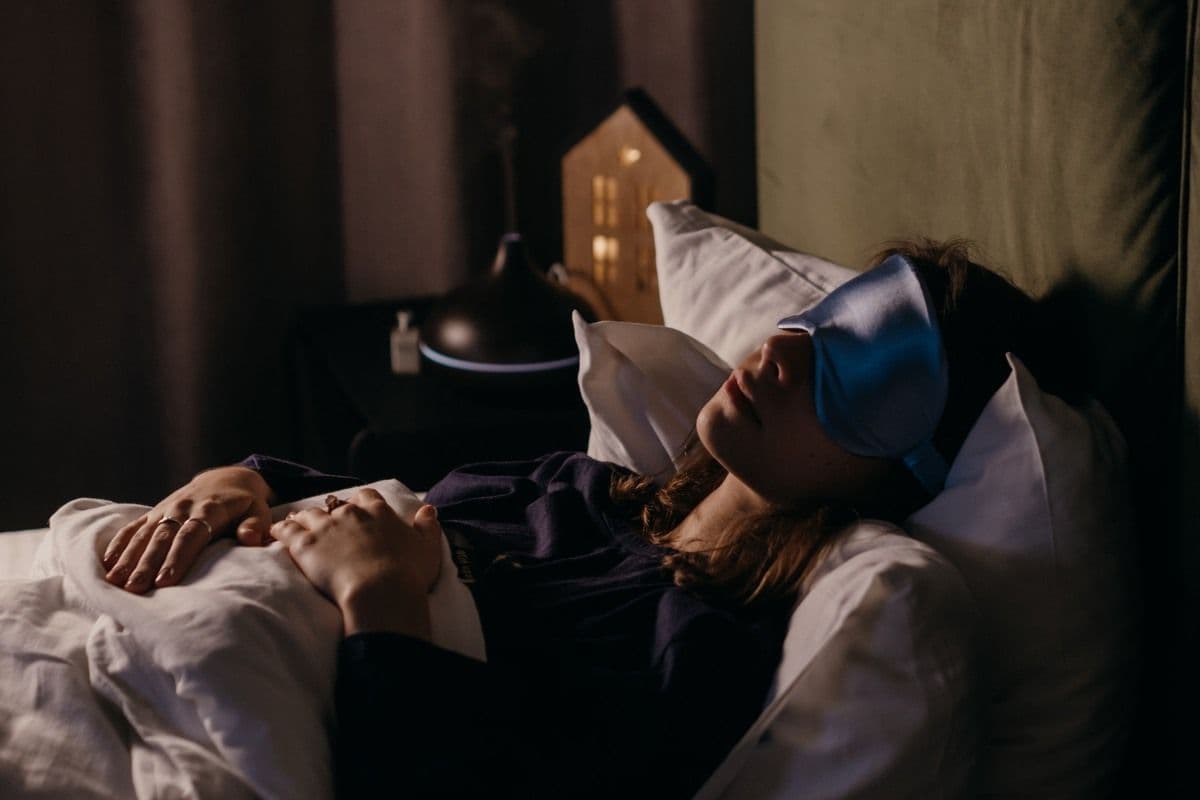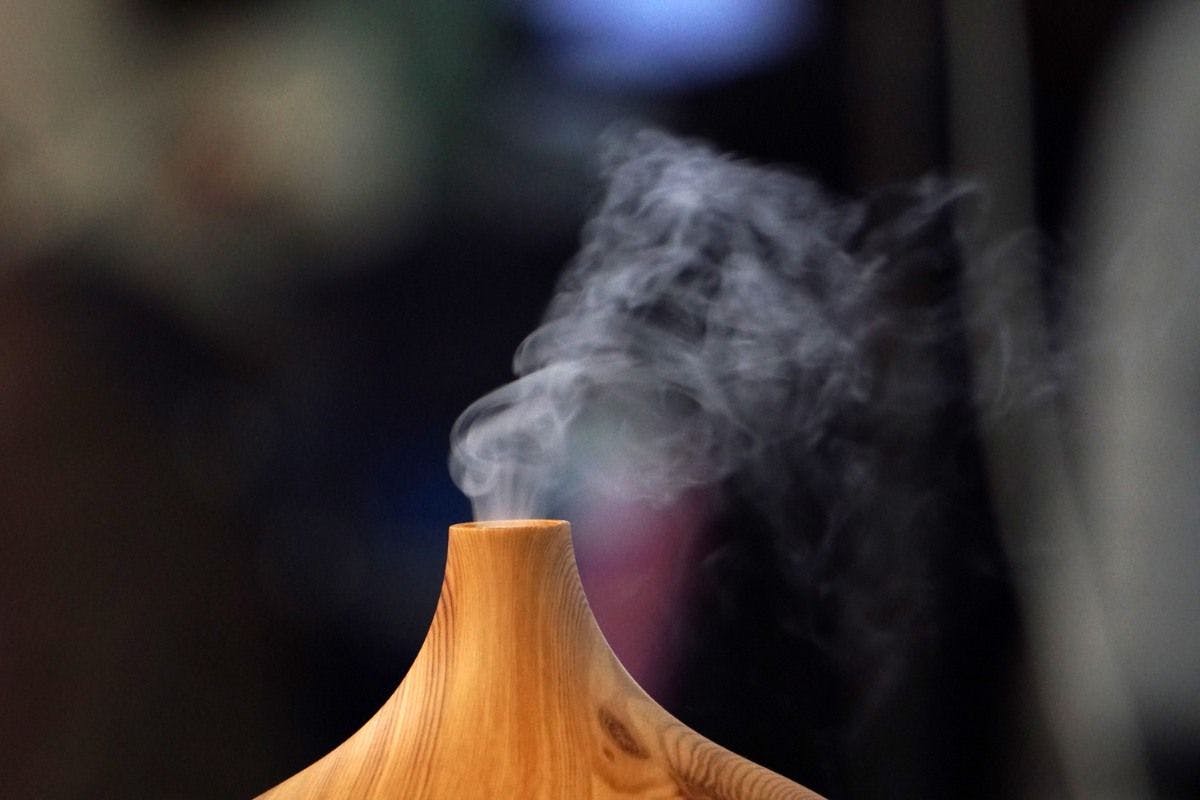What to do if I can't fall asleep? Proven methods for falling asleep quickly
It's long past midnight, but you're still staring at the ceiling. You may be tired as hell, but you can't sleep. Does this happen to you regularly?
Then we have some proven techniques for you to fall asleep when you can't. And we'll look at sleep hygiene to help you sleep better in the long run.
How to fall asleep when you can't
Five proven methods and tips to help you fall asleep as quickly as possible.
1. The 4-7-8 method
This method is based on yoga techniques and helps you get into deep relaxation in just a few minutes.
How to do it?
- Put the tip of your tongue on the upper part of your mouth.
- Take deep breaths through your nose for 4 seconds.
- Hold your breath for 7 seconds.
- Exhale through the mouth for 8 seconds.
- Repeat this at least four times.
2. Release and visualization
Do you feel tension in your body that won't let go? This technique will help you to release it and promote calming.
How to do it?
- Start relaxing the muscles in your face. Concentrate on the forehead, eyes, cheeks, ears, lips, tongue and jaw.
- Then continue lower, gradually relaxing each part of the body down to the feet. Try not to miss anything and really feel the relaxation. You can synchronise it with your breath and relax another part of your body with each exhalation.
- Then imagine in your mind somewhere nice and quiet. Focus on the details, such as the sounds, colours and sensations that wash over you. It could be a bouncing boat on a calm lake or perhaps a hammock on the beach at sunset.

Play a guided meditation
If the previous technique is too demanding or you just want to make it easier, play a guided meditation for a peaceful sleep. You can find plenty of them on Spotify and YouTube. A voice will guide you through the relaxation and visualization, so you can focus on your body and breath.
Meditation can be challenging at first, but it really helps with sleep. These 16 studies confirmed that mindfulness training, of which meditation is the main tool, helped 82% of participants to sleep better. That's a heck of a chance of success.
Relaxing music and sounds
Not your favourite song to hum along to, but quiet sounds of nature, meditation music or music designed for deep sleep. You can even combine it with the previous methods. Try searching for terms like "music for deep sleep", "nature sounds for sleep" or "meditation music". If you don't want music playing all night, set your music to turn off automatically.
Aromatherapy
Even aromatherapy can be combined with all the previous methods. Some essential oils have great relaxing effects. These include especially lavender, chamomile, eucalyptus or sage. You can enjoy their scent most intensely in an aroma diffuser or aroma lamp, but you can also drip them on your pillow or use them on your body. But first, make sure that the oil can actually be used on the skin.

How to finally sleep better
The techniques and tips we've just described will really help you fall asleep. But there's one small catch. They don't address the cause of your poor sleep. They only go after the symptoms, so you may well continue to struggle with trouble falling asleep. Although now you can deal with it better.
If you really want to start enjoying quality sleep, you'll need to make a few lifestyle changes. Let's take a look at them.
The ten commandments of sleep hygiene
These ten tips have proven effects on better sleep.
- Ventilate well before going to bed, darken the windows and keep the temperature in the bedroom at 18-20 °C.
- Go to bed and wake up around the same time
- even at the weekend. Your body will get used to it and fatigue will come at the same time.
- Get regular exercise, ideally in the fresh air. But be careful, three to four hours before bedtime, just go for a light walk.
- Five hours before falling asleep, do not drink coffee, black or green tea. And of course no energy drinks.
- Do not drink alcohol in the evening. Although it sometimes makes it easier to fall asleep, it has been shown to reduce the quality of sleep.
- Eat no later than three hours before bedtime and have something light.
- Don't smoke in the evening and don't light a cigarette when you wake up at night.
- Only be in bed when you're supposed to be asleep. Don't watch movies, work, eat or read. When you wake up in the morning, get up and start your day.
- Turn off all screens at least an hour before bedtime. Do not watch TV, Netflix and put your phone away. Blue light blocks the production of the sleep hormone.
- After dinner, don't deal with anything important that might upset you. Don't open your work email, don't watch the news, save any important conversations for the next day.

Two tips for not giving up Netflix and your phone for good in the evening
The biggest stumbling block to the sleep commandments is turning off screens before bed. We totally understand. That's why we've got two tricks to get around this point. At least until you get used to your new habit.
- Set a mode on your phone in the evening to switch the screen to red. It will not emit blue light. A red screen is unusual, but at least it's a compromise and won't ruin your sleep. Check out the instructions.
- Or you can get a good pair of blue-blocking glasses. But they're not enough for computer work. Really functional glasses are orange or red and block light from the sides.
But if you're going to watch a movie or series, put on something relaxing. No horror or action movies to get your heart rate up. Gradually try to get through the evening without screens. How about listening to a podcast or audiobook?
Could it be the psyche?
You may be doing the last one first for sleep hygiene, but when you lie down in bed, your head is still going full blast.
What about it? Journaling can help you calm your thoughts before sleep. You simply throw all your thoughts on paper and write them out. You can make it an evening ritual, adding to it, for example, a short yoga session, candlelight meditation and herbal tea. Our brains love regularity, and with a ritual you give it the signal that it's time to go to sleep.

But the ideal solution is psychotherapy, which helps you to address the root cause of the problem. You may be suffering from long-term stress, anxiety or depression. A damaged psyche often takes a toll on your sleep. But it works the other way around, too. If you suffer from insomnia, you are statistically five times more likely to develop depression.
So don't just try to deal with the symptoms of the problem and work on your problem in depth. The peace of mind is worth it.
Learn how psychotherapy can help you sleep.
Hedepy has over 40 certified psychotherapists at your disposal. You can connect with them conveniently from your home via video call.
Take the 5-minute test and we'll recommend three tailored therapists.
Thinking about therapy?

My First Therapy: How to Prepare and What to Expect

What is psychotherapy? And who is it for?


